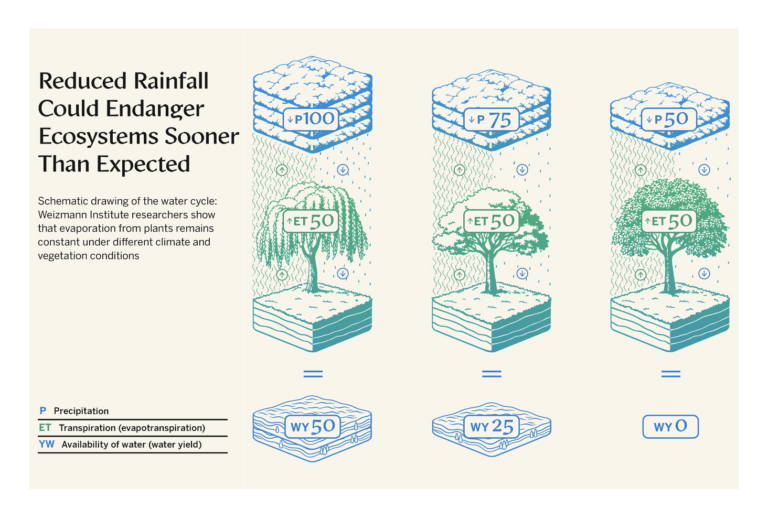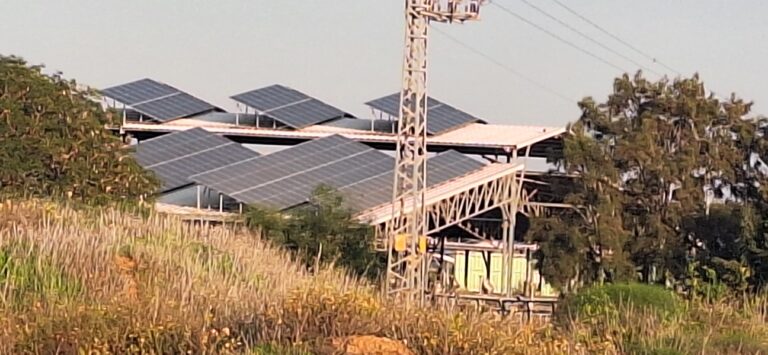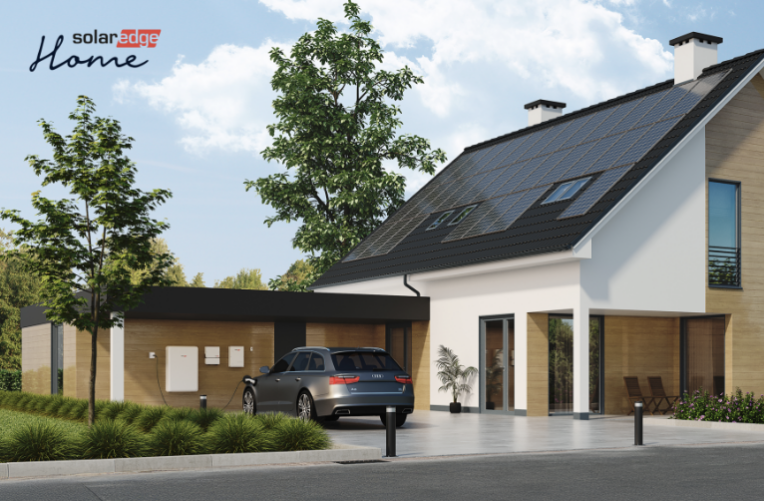Pollution de l'air intérieur : en Ethiopie, des ingénieurs (ISF Israël, Technion) veulent installer des fours écolos

[:fr]
Dans les régions rurales en Éthiopie, des ingénieurs israéliens affiliés à Ingénieurs sans Frontières* (ISF) tentent de convaincre les populations locales de remplacer leurs vieux fours par des fours intérieurs alimentés aux biocarburants, beaucoup moins polluants. Pour Mark Talesnick, professeur en ingénierie civile et environnementale qui pilote ce projet visant à valoriser le fumier de vache, il s’agit d’un «problème de transition énergétique». Le four à biocarburant est l’un des nombreux projets menés par ISF Israël, située au Technion, à Haïfa en Israël, où quelques 70 étudiants travaillent sous la supervision de Mark Talesnick. Le projet « four neuf » fait partie des missions du Center for Global Engineering du Technion visant à créer des solutions d’ingénierie durable dans les communautés qui n’ont pas accès aux réseaux d’électricité.
L’amélioration des méthodes de cuisson à l’intérieur des maisons est un centre d’intérêt majeur pour ces ingénieurs israéliens. Dans de nombreuses régions du monde en développement, les ménages ruraux utilisent des fours traditionnels au bois et au fumier, brûlant du combustible sale dans des maisons en paille et paille mal ventilées et investissent des heures de travail acharné pour récolter du bois. La fumée cancérigène de ces fours provoque de graves problèmes respiratoires, visuels et de santé, en particulier chez les mères et leurs enfants, qui passent beaucoup de temps à la maison.
Organisés en cinq groupes, les ingénieurs d’ISF Israël travaillent sur un programme visant à améliorer la qualité de l’eau potable et à réduire la pollution de l’air intérieur dans les villes éthiopiennes de Lalibela et Mekelle, à l’installation de chauffages à turbine et solaires dans le désert du Néguev en Israël.

«Il y a environ 10 ans, j’ai décidé de montrer à mes étudiants qu’ils peuvent ouvrir la voie vers un changement positif », avait déclaré le Pr Talesnick lors d’une conférence TED en Israël en novembre 2013. “Ce n’était pas simple. Je devais penser à ce qui nous manquait, à ce que nous donnions à nos étudiants pendant leurs études et à donner du sens avant qu’ils rejoignent le monde du travail. Nos étudiants acquièrent une expérience pratique durant leur formation et des compétences pour développer des solutions aux problèmes de la vie réelle« .
Aider les laissés pour compte de la planète
Selon Mark Talesnick, l’impératif humanitaire était d’aider les «laissés pour compte de la planète« , tout en évitant les dégâts causés à l’environnement par les nantis. Il espère inciter les étudiants à «prendre conscience que leur travail peut changer le monde tout en leur donnant les compétences et l’expérience pratique pour le faire ».
Cet été, un groupe d’une trentaine d’étudiants originaires d’Israël, d’Éthiopie et de Toronto passera un mois à Mekelle dans le cadre d’un programme du CGE pour développer des cheminées et des poêles à combustion performants. Tigabu Zegeye, 21 ans, étudiante en informatique et en ingénierie à l’Institut de technologie de Mekelle, a participé à l’un programme d’été il y a deux ans et y retournera cet été. Elle raconte : « une grande partie du défi est la sensibilisation des membres des communautés locales qui résistent parfois au changement. Cet été les étudiants construiront un poêle dans une seule maison, puis travailleront avec la municipalité locale pour l’installer plus largement« .
«Parfois, on peut convaincre les gens si on leur montre des idées pratiques. Ils en ont assez que la cheminée rejette de la fumée dans leur maison », a déclaré Tigabu Zegeye, qui a grandi dans un petit village de la région rurale d’Ethiopie, à une centaine de kilomètres de Mekelle. Une grande partie du défi que représente l’introduction de nouvelles technologies dans les régions rurales en Éthiopie réside dans la sensibilisation des populations.
« J’ai senti que je faisais quelque chose de vraiment utile »
Tamar Fradkin, 27 ans, étudiante en architecture au Technion, a suivi un cours d’été en 2016. Elle a suivi des cours sur la mondialisation, les pays en voie développement et la durabilité, et elle a passé une semaine dans un village au nord de l’Éthiopie, s’initiant aux problèmes locaux et aidant à concevoir des solutions.
«Cela m’a fourni l’un des outils les plus puissants que j’ai reçus dans ma formation : la perspective humaine de notre travail, une compréhension de ceux pour qui nous concevons», a déclaré Tamar Fradkin. «En milieu universitaire, vous étudiez souvent des livres au lieu d’apprendre et rencontrer de vraies personnes sur le terrain. C’est l’une des choses les plus importantes et les plus pratiques que j’ai faites. Vous sentez que vous faites vraiment quelque chose d’utile.«
Ari Van Der Merwe, 24 ans, étudiant au Technion et résidant à Jérusalem, a travaillé durant l’été 2017 sur un projet ISF à Haïfa, pour développer un projet d’aide à la population locale mal desservie en espace vert et public, dans le quartier de Neve Paz, un quartier pauvre avec une importante population immigrée. Bien qu’il ne s’agisse pas d’un projet d’ingénierie traditionnel, les étudiants devaient acquérir des compétences en résolution de problèmes et approche communautaire faisant partie du mandat du Center for Global Engineering. «Je cherchais un projet de proximité vraiment sur le terrain où vous devez être présent durant plusieurs semaines», a déclaré Ari Van Der Merwe.
Des digesteurs au Népal et des espaces verts à Haïfa
La section ISF Israël a également construit des dizaines des digesteurs réacteurs à biogaz dans des zones rurales au Népal, lancé un projet d’énergie renouvelable à Jérusalem-Est et développé un programme visant à créer de meilleurs espaces publics dans le quartier de Neve Paz à Haïfa, une zone pauvre de population immigrée. Le premier projet mené par des étudiants et Marc Talesnick il y a dix ans a permis d’envoyer des étudiants du Technion au Népal pour développer des réacteurs au biogaz, qui utilisent des déchets naturels d’animaux et humains pour générer du méthane, ce qui leur permet de cuisiner. Dans les réacteurs, les déchets organiques tels que les excréments animaux et les déchets végétaux sont conservés dans une fosse pendant leur décomposition, produisant ainsi une suspension pouvant être utilisée comme engrais et du biogaz pour être utilisé comme combustible efficace. Les étudiants de Technion ont conçu des réacteurs en utilisant un processus beaucoup moins intensif en main-d’œuvre que les méthodes traditionnelles en développant une natte de bambou réutilisable pour leur construction.
Les étudiants de ISF Israël ont également fait du bénévolat dans une école élémentaire locale et ont exploré divers projets, comme la création d’un café éthiopien où les nouveaux immigrants éthiopiens en Israël pourraient partager leur culture avec les israéliens de Haïfa. «Pour ces communautés, un petit changement modifie considérablement leur qualité de vie», a déclaré Avigail Dolev, directeur du CGE.
Sources Jewish Telegraphic Agency et Technion France
* ISF est une une ONG internationale qui cherche à mobiliser les compétences d’ingénieurs pour aider les populations démunies dans le monde
[:en]
Israeli engineers are trying to replace traditional, dirty indoor ovens used in rural Ethiopia with biofuel-powered indoor stoves that emit much less pollution. (Courtesy of the Technion’s Center for Global Engineering)
It’s a new, African version of the old adage about teaching a man to fish so you can feed him for a lifetime.
Except in Ethiopia it’s about teaching him — or her — to use cow manure to generate biofuel to power a clean-burning stove in their home.
In this case, Israeli engineering students are using technology to help rural villages become not just more environmentally sustainable, but reduce the labor and ill health effects that come with traditional, wood-based fuel for cooking.
Mark Talesnick, the Israeli professor behind the project, describes the cow manure initiative as “Shit for change.”
The biofuel oven is one of a variety of projects being spearheaded by the Israeli chapter of Engineers Without Borders, an international NGO that seeks to harness the skills of engineers to help the world’s underserved populations. The only Israeli chapter of the group is at the Technion-Israel Institute of Technology in Haifa, where some 70 students work on projects under the oversight of Talesnick, a professor of civil and environmental engineering.
The program is part of the Technion’s Center for Global Engineering, whose mission is to create long-term, sustainable engineering solutions in communities that lack access to basic needs.

“About 10 years ago, I decided I was going to leave a mark. I was going to try to find a way that my students would light the path to positive impact,” Talesnick said in a November 2013 TED talk in Israel describing his impetus for the program. “It wasn’t simple. I had to think about what we were missing, what were we giving to our students while they were studying, and what did it mean when they left to go into the real world.”
The moral imperative that guides the work, Talesnick says, is to help the world’s “have-nots” while avoiding the cataclysmic environmental damage being wrought by the world’s “haves.” He also hopes to spur among students “a social conscience about how their work could change the world” while giving them the skills and hands-on experience to do so.
Working in five groups, their efforts range from a program to improve drinking water quality and reduce indoor air pollution in the Ethiopian cities of Lalibela and Mekelle to installing turbine and solar-powered heaters in Israel’s Negev Desert. The Technion’s Engineers Without Borders chapter also has constructed dozens of “biogas reactors” in rural Nepal, launched a renewable energy project in eastern Jerusalem and developed a program to create better public spaces in the Neve Paz neighborhood of Haifa, an impoverished area with a large immigrant population.
Students with the Technion’s Engineers Without Borders chapter worked with Haifa residents to develop a program to create better public spaces in the city’s Neve Paz neighborhood, an impoverished area with a large immigrant population. (Courtesy of the Technion’s Center for Global Engineering)
The first student-led project Talesnick spearheaded a decade ago sent Technion students to Nepal to develop the biogas reactors, which use natural animal and human waste to generate methane gas for cooking. In the reactors, organic waste such as animal excrement and vegetable scraps are kept in a pit while they decompose, eventually producing a slurry that can be used as fertilizer and biogas for use as an efficient fuel. The Technion students were able to produce the reactors using a much less labor-intensive process than traditional methods by developing a reusable bamboo mat to construct them.
Improving indoor cooking methods remains a major area of interest for the Israeli engineers. In many parts of the developing world, rural households use traditional wood and dung-burning ovens, burning “dirty” fuel in mud-and-straw homes with poor ventilation and investing hours of backbreaking labor to harvest wood. The carcinogenic smoke from these ovens causes major respiratory, vision and health problems — especially for mothers and their children, who spend a lot of time in the house.
This summer, a group of some 30 engineering students from Israel, Ethiopia and York University in Toronto will spend a month in Mekelle as part of a program run by the Technion’s Center for Global Engineering to develop chimneys and efficient fuel-burning stoves.
Tigabu Zegeye, a 21-year-old computer science and engineering student at the Mekelle Institute of Technology, participated in one of the summer programs two years ago and will be going back this summer. A big part of the challenge, he said, is outreach to local community members who might be resistant to change. The students going this summer will build a stove in a single household and then work with the local municipality to install it more widely.
“Sometimes people can get convinced if you show them some practical ideas. They get tired of the chimney blowing smoke back into the house,” said Zegeye, who grew up in a small village in rural Ethiopia about 100 miles from Mekelle.
A big part of the challenge in bringing new technologies to rural Ethiopia is outreach to locals who might be resistant to change. (Courtesy of the Technion’s Center for Global Engineering)
Tamar Fradkin, 27, an architecture student at the Technion, did a summer course in the program in 2016. She took classes on globalization, the developing world and sustainability, and spent a week in a village in northern Ethiopia learning about local problems and helping devise solutions.
“It gave me one of the strongest tools I’ve received in my education — the human perspective on our work, an understanding of who we’re designing for,” Fradkin said. “In academia, often you’re studying books rather than learning and meeting real people in the field. This is one of the most important and practical things I’ve done. You feel that you’re doing something.”
Ari Van Der Merwe, a 24-year-old Technion student from Jerusalem, spent his summer in 2017 working on an Engineers Without Borders project much closer to home, in Haifa. His mission was to develop a project to help the local underserved population. Locals repeatedly said that what they needed was green, open space, something that was lacking in their community since a park in the neighborhood fell into disrepair years earlier.
While not a traditional engineering project, it required students to develop problem-solving and community outreach skills that are part of the Center for Global Engineering’s mandate.
“I was looking for something closer and really on the ground, where you can be there every week and you’re making a difference where you live,” Van Der Merwe said.
The students also volunteered at a local elementary school and explored a variety of other projects, including creating an Ethiopian-style cafe where new immigrants to Israel from Ethiopia could share their culture with their native Israeli neighbors in Haifa.
“For these communities, a little change makes a huge change in their quality of life,” said Dr. Avigail Dolev, director of the Center for Global Engineering.
Meanwhile, the students get hands-on experience using their education and skills to develop solutions to real-life problems.
“It’s a win-win situation,” Dolev said.
Source Jewish Telegraphic agency
[:]







